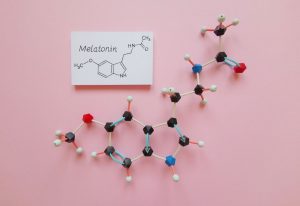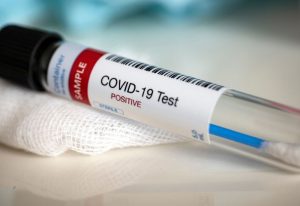International scientists have recently shared startling findings with over 50 prominent individuals in science, politics and the media: Melatonin is being neglected, trivialized and negated in the fight against COVID-19 and related strains to a criminal extent. A German university biologist and member of the Leibniz Society in Berlin has also confirmed this view with his own independent study. Still, no one is reacting. The fact is: Many doctors remain unaware of significant findings related to the use of the endogenous hormone melatonin in viral diseases in the last 20 years.
What is Melatonin?
 Melatonin is a messenger substance. It is neither a drug nor a sleeping aid. A gland in the brain, along with the optic nerves, releases a certain amount of melatonin, signaling to the body’s various organs that it’s time to go to bed.
Melatonin is a messenger substance. It is neither a drug nor a sleeping aid. A gland in the brain, along with the optic nerves, releases a certain amount of melatonin, signaling to the body’s various organs that it’s time to go to bed.
The brain is not the only organ that produces melatonin; various tissues and organs throughout the body secrete and use this important substance. In fact, it fulfills many important functions throughout the body.
Melatonin as Adjunct or Regular Treatment for Deadly Viral Diseases
A research paper titled Potential utility of melatonin in deadly infectious diseases related to the overreaction of innate immune response and destructive inflammation: focus on COVID-19 illustrates the ways in which the well-known sleep hormone melatonin helps with viral diseases like COVID-19.
In the paper, it is assumed that the majority of viral diseases are self-limiting with the help of the learned immune system. This depends on the production of cells such as scavenger cells and killer cells; a development that takes a few weeks. Mortality occurs during this period. In order to increase patient tolerance and reduce mortality, controlling the immune response and reducing inflammation is important. This is where melatonin comes into play.
Research examining melatonin in viral diseases shows that melatonin limits immune system overreaction and inflammation while promoting adaptive immune activity. In addition, it is quite safe, with no serious side effects. The authors of the study recommend the use of melatonin as adjunct or even standard treatment of deadly viral diseases, especially when no effective direct anti-viral treatment is available.
Melatonin is Undervalued in the Medical World
Despite promising study results, melatonin still seems to find too little recognition among medical professionals. Researchers in the field of chronobiology explain that the misconceptions about the hormone account for this.
For example, melatonin is known as a sleep-promoting agent, but its anti-inflammatory effect is often ignored. In addition, companies are not interested in melatonin because it is a natural substance and cannot be patented.
Studies Show the Effectiveness of Melatonin in Viral Diseases
Still, the fact that melatonin can be used effectively to treat COVID-19 has been confirmed by many scientists in various studies. The study, “Can Melatonin Be a Potential ‘Silver Bullet’ in Treating COVID-19 Patients?” underscores the potential of melatonin in combating SARS-CoV-2 infection due to its anti-inflammatory and immunomodulatory effects. In addition, melatonin can be an adjuvant, as it may increase the effectiveness of anti-SARS-CoV-2 vaccines.

Scientists specializing in melatonin research recommend taking 3 mg at least three times a day (9 mg total), preferably spread throughout the day, as a precaution and to protect against infection. If you have been infected, the recommended dose is 15 to 24 mg per day. Melatonin also augments the immune system after vaccination to improve its response.







